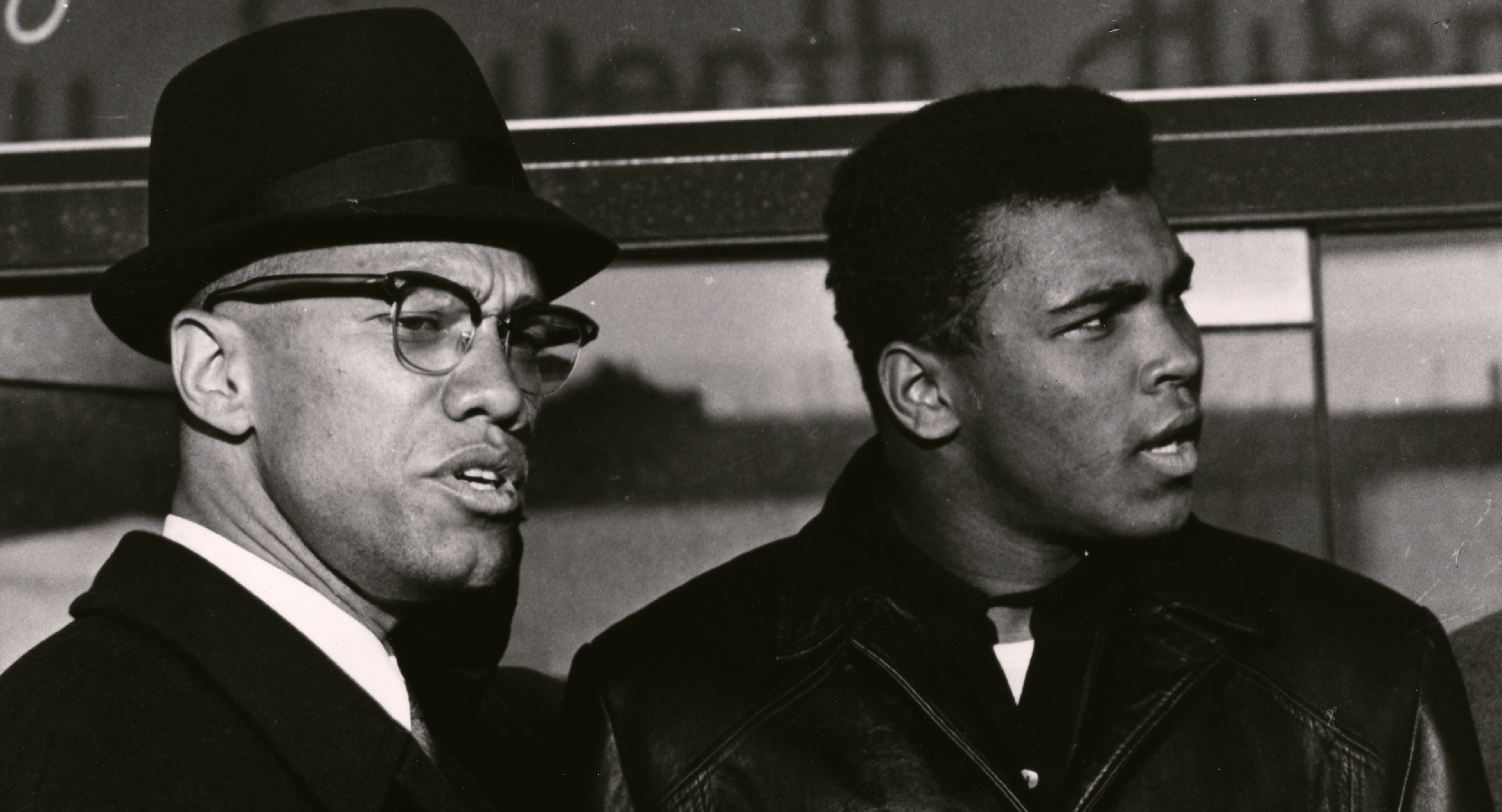 It's something of a companion piece to Regina King’s 2020 directing debut One Night in Miami (although I’ve gone back and forth on which you should watch first)—or perhaps the cinematic equivalent of bonus reading after that wonderful film. Director Marcus A. Clarke has pieced together the documentary Blood Brothers: Malcolm X & Muhammad Ali, a more complete examination of the deep friendship and painful falling out by two of the most influential and controversial figures of the 20th century.
It's something of a companion piece to Regina King’s 2020 directing debut One Night in Miami (although I’ve gone back and forth on which you should watch first)—or perhaps the cinematic equivalent of bonus reading after that wonderful film. Director Marcus A. Clarke has pieced together the documentary Blood Brothers: Malcolm X & Muhammad Ali, a more complete examination of the deep friendship and painful falling out by two of the most influential and controversial figures of the 20th century.
 Image courtesy of Netflix
Image courtesy of Netflix
The film begins as two separate but parallel life stories that don’t necessarily seem destined to meet in the middle. Malcolm grew up the son of parents who followed the teachings of the Jamaican political activist and successful entrepreneur Marcus Garvey, so his eventual path into empowering Black people seemed almost predestined. Whereas Ali (original name Cassius Clay) was a boastful young boxer from Louisville, Ky., at a time when athletes were universally humble and didn’t talk about how pretty they were. But when their paths finally crossed in a secluded diner, Malcolm knew so little about sports, he had no idea who Ali was. It turns out that Ali had been secretly learning about Islam and its leader (and Malcolm’s mentor) Elijah Muhammad for many years before this fateful meeting, and Malcolm was sent to solidify the connection.
The film intersperses some wonderful archival footage of both men, but the closer together their lives come, the more it is able to use more recent interviews with those who knew them at the time, including invaluable input from Ali’s brother Rahman and his daughters Maryum and Hana, as well as Malcolm X’s daughter Ilyasah Shabazz. All of them paint a picture of the friendship that grew between these two men as a powerful brotherhood. Director Clarke doesn’t shy away from the contradictions of the relationship either. Ali was hesitant to let his affiliation with the Nation of Islam, which had a reputation for being anti-white, be known for fear of scaring away his sponsors and fans. But by the time we get to the famed "night in Miami" portion of the documentary (in the immediate aftermath of his boxing win over Sonny Liston), we know that Ali emerged from that day a changed man for many reasons.
Blood Brothers also has testimony from the Rev. Al Sharpton, Dr. Cornel West, and the authors of the book of the same name that the film is based on, Randy Roberts and Johnny Smith, as well as other cultural dignitaries who provide perspective rather than first-hand accounts. The reasons behind the dissolution of the friendship are perhaps less clear but no less fascinating, as Malcolm X began to separate from Elijah Muhammad’s teaching—first he was too militant, then he was too soft on whites. Certainly Malcolm had his followers and was still considered one of America’s premier Islamic ambassadors, but when he exposed that Elijah Muhammad had fathered several children by young girls and women in his employment, that’s when the death threats began coming in, which eventually led to his assassination in 1965.
Before Malcolm X’s death, Ali was forced to make an impossible choice: stay friends with the man who he invited into his home for years or side with Elijah Muhammad and publicly denounce Malcolm. In many of the recent interviews, Ali’s daughters and his brother say that breaking with Malcolm X was the biggest regret of Ali’s life, and it’s easy to believe. Blood Brothers doesn’t dig any deeper than it needs to into the background of its subject or Islam or the way the two men were hounded by government agencies until they were largely stripped of their political power. Director Clarke is primarily interested in painting the most accurate portrait he can of this brotherhood and partnership. Together, they pushed back against oppression and wondered what the world would be like if Black children never grew up believing they were somehow inferior. The documentary is a deeply personal experience, while also feeling a bit like it’s only skimming the surface of what these two did and could have accomplished together. With a ripping score by the Menahan Street Band (a label mate of the late Sharon Jones), the movie is illuminating, complex, and easy to slip into in terms of its storytelling,
The film begins streaming September 9 on Netflix.
https://www.youtube.com/watch?v=gvOAuxFCGeUDid you enjoy this post? Please consider supporting Third Coast Review’s arts and culture coverage by making a donation. Choose the amount that works best for you, and know how much we appreciate your support!
